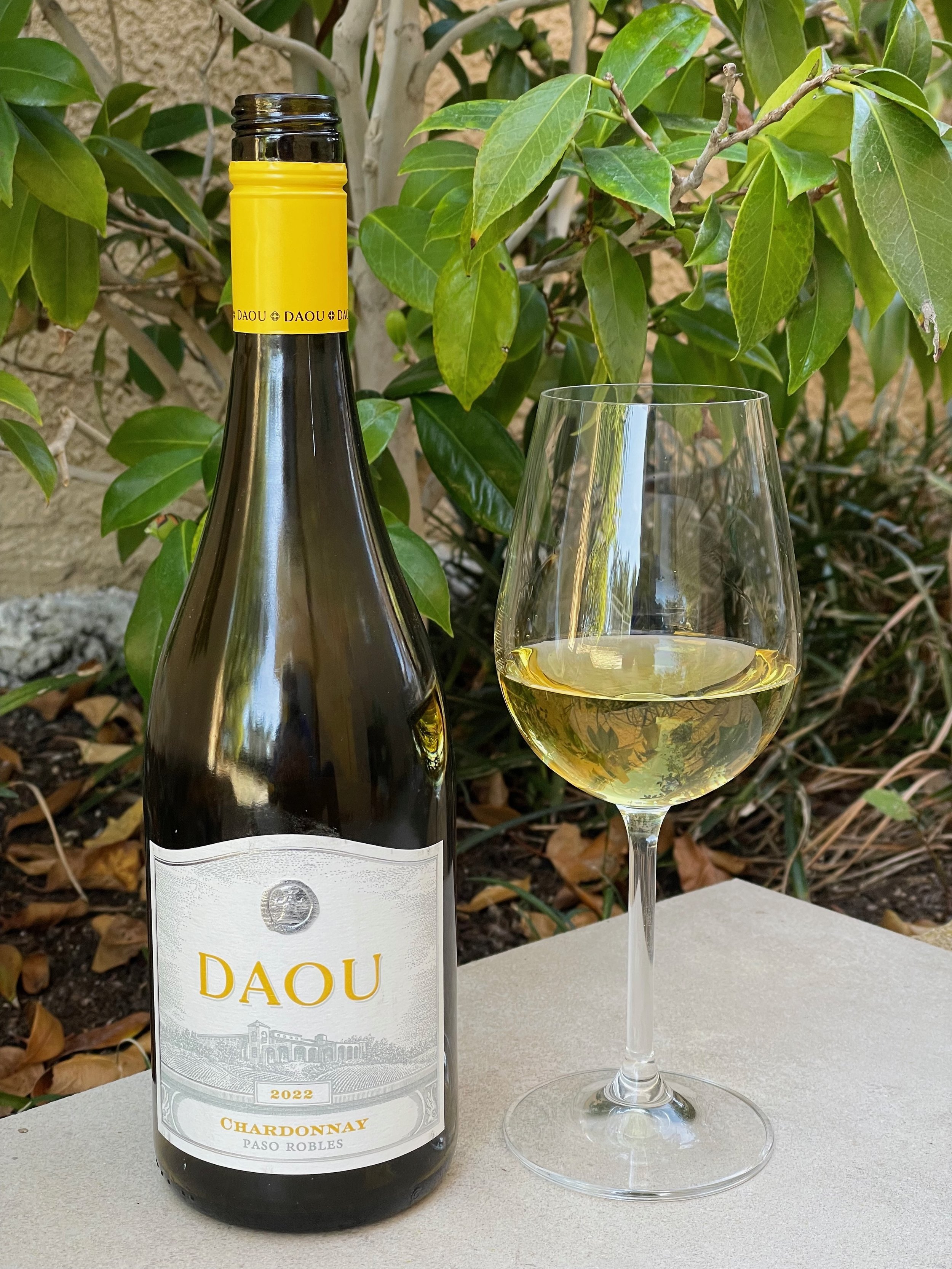2022 Daou Chardonnay ($16)
Daniel Daou always had dreams of becoming a winemaker, but as a young man in France, this was completely out of reach. He placed this dream on the back-burner, but the pulse of that dream never truly faded. It was always there in the background, calling to him. To feed that passion, Daniel ravenously studied and collected wines while raising his young family in San Diego. “When I would go to kiss my father goodnight, he was always reading a wine book,” his eldest daughter Katherine fondly recalls. This passion ultimately led him to follow his winemaking dream and discover what is now DAOU Mountain in Paso Robles, California.
This 100% Chardonnay, barrel-aged for five months, with 30% in new French oak, exhibits a deep golden yellow color and light aromas of tropical fruit, vanilla, and floral notes. On the palate, it strikes a balance between a bright, crisp, and fruity Chardonnay from stainless steel tanks and one with heavy oak aging. While it undergoes five months in French oak, pineapple and pear flavors persist, complemented by rich vanilla notes from the new oak.
This Daou Chardonnay is another fantastic wine from Daou. And guess what? It’s super affordable and widely available. That makes it the perfect choice for this week’s Behind the Cork™ Wine of the Week!
Pick this one up. I'm going back for more! Cheers!



